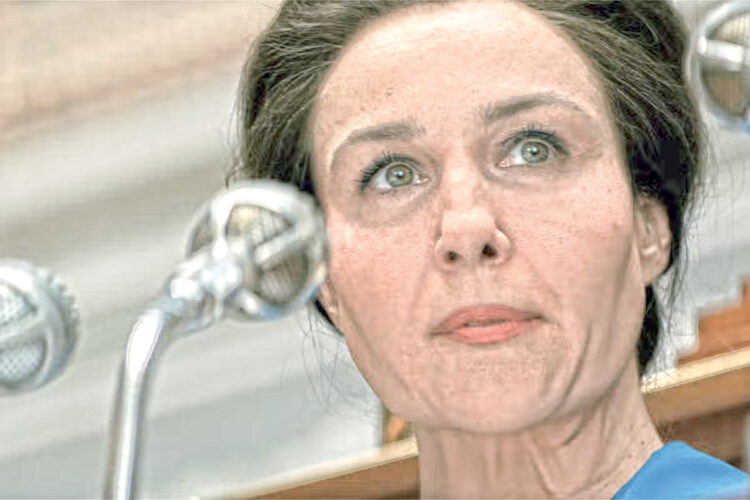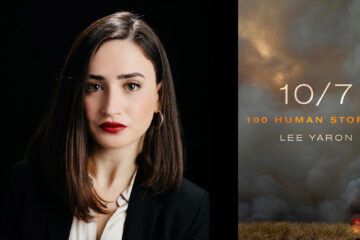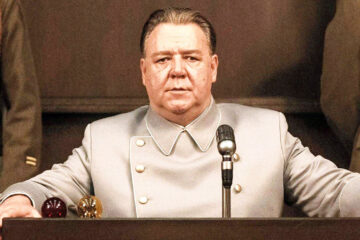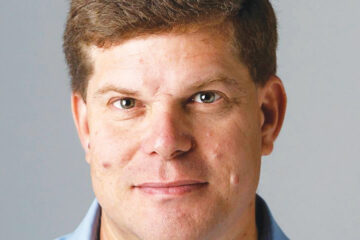Elsa Zylberstein’s moving portrait of a Jewish legend

By Lior Zaltzman, Kveller
There’s something alchemical that happens when you watch Elsa Zylberstein on screen. The French Jewish actress becomes her characters — be they amazing or villainous, comedic and dramatic.
After watching her in Simone: Woman of the Century, in which she stars as a somber, serious and heartrending Simone Veil, the French politician and Holocaust survivor who helped legalize abortion in the European country, it’s jarring to speak to Zylberstein “in real life” over Zoom.
Simone is her biggest Jewish role yet — embodying a woman who is larger than life, a French historical icon who survived Auschwitz and dedicated her life to preserving the dignity of women and other persecuted people. Zylberstein was also an associate producer on Simone, which came out in 2021 in France.
Kveller talked to Zylberstein about why Simone Veil’s story is relevant now more than ever. This interview has been edited and condensed for clarity.
What did you know about Simone Veil before working on this project? I know you met her, but watching this movie it’s incredible to see just how much she has done in her lifetime.
She was a very big figure in my country, but I didn’t know how much she had done. The first time I met her 12 years ago, I was supposed to give her a prize at a special dinner. I was invited to her table. I had dinner with her and her family — I was so impressed with her. Then she came to dinner at my house, we had tea, and I thought, “Oh my God. Oh, all that she has done! We should do a film.”
When she was still alive, it was complicated to do a film on her. Then she died (in 2017) and I went to the funeral, and I thought, coming out of that, with President Macron at the Pantheon, now I’m doing it. I set up the whole thing in three years, after 10 years of desires and discovering everything (about her) day after day, more and more.
A small story that I didn’t tell anyone in France: After I had met her, one day I ran into her ex-stepdaughter at the hairdresser, and she came to me and said, “Oh, Elsa, I’m shocked. I just had lunch with Simone Veil. And she said she didn’t want to give the rights of her book, nothing. She doesn’t want any film when she’s alive. And she said, ‘If one day there is one film when I won’t be here — the only actress who could play me is Elsa Zylberstein.’”
That’s so moving!
But to answer your question, I didn’t know how much she had done for women — and for people, not just for women. Besides the abortion law, she fought like crazy to further respect and dignity of all people.
I was really moved by her desire of changing the world, knowing where she was coming from. Knowing that she was a Holocaust survivor — the roots of all her fight came from that. So it’s very special and gives you goose bumps when you discover that oh, what she was doing was because she was a Holocaust survivor, because her mother told her don’t depend on anyone, because her mother died during the Death March. Because of all this, she fought like crazy and she became the first woman to be the head of the European Parliament. Because of all this she became this strong woman.
The movie starts with you as Simone, talking about how the last of the Holocaust survivors are dying. Did that feel important to you? Because you have a personal connection to the Holocaust, right?
My father was a hidden child during the war. And my grandmother was hiding in Paris, hiding in Lyon; my grandparents went to the camps. It was maybe for my father that I did this film.
But besides this, I got to talk more and more to Simone and to (fellow Auschwitz survivors) Ginette Kolinka, Marceline Loridan-Ivens and Paul Schaffer, who was best friends with Simone in Bobrek (a subcamp in Auschwitz). I saw and spoke to Paul for a year before he died. He was an amazing man; he was obsessed with transmission. That the film did 2.5 million seats (in France) is important for the transmission. This film will tell 13-, 14-year-old people what happened.
And some girls wrote me, “Oh my God, I didn’t know about her. I’m 14. I didn’t want to do anything with my life. Now I want to become like her. I didn’t want to work at school. Now I’ll be a hard worker. I want to become a lawyer. I want to change the world.” So many letters like this. That their life wouldn’t be the same after this film is the most beautiful thing I’ve seen in my life. And for that I’m so proud that I produced the film. I’m very proud as an actress as well, and as a woman.
It was so interesting to watch this movie and see what’s happening in the U.S. now with abortion, because the same rhetoric can be found here.
That’s why this film is important now. Even in Spain, Poland, or even here (in France), but also in America, I know a lot of Republicans are against abortion. I mean, you want women to die? Because they’ve been raped, you want women to die because they don’t desire that baby? I can’t believe that. It’s interesting to have this film nowadays in America, especially. (Abortion) is a very essential right for a woman. It is essential. What’s interesting about Simone is she didn’t say oh, it’s our desire as women (to have access to abortion). She put it on public health. That’s why she succeeded in what she did.
I found it remarkable that she started her career after becoming a mother.
Yeah, she has to be a mother. She has to be a magistrate. She has to become a minister. She was everything. She was remarkable for that time, especially. For me, the key of this part is that she’s doing that for her mother. Her mother’s taught her to be free as a woman and never to depend on anyone.
Why do you think Simone didn’t want a film about her while she was still alive?
I don’t know — I never speak for her. I think she’d be happy with the power of the film. She was obsessed with “never forget.”
You know, those people in camps went through hell. It’s unspeakable what they went through. When I developed this film, when I wanted this film and produced this film, I couldn’t even expect how relevant it would be.
Every battle in the film, all her fights for HIV patients, for incarcerated people, against racism, for women’s rights. It’s not a period film. Everything she’s fighting for: It’s happening now.
JCC Film Fest and Dayton Hadassah present Simone — Woman of the Century, 10 a.m., Tuesday, June 17 at The Neon, 130 E. Fifth St., Dayton. $12. Hadassah will host a reception at 9:30 a.m. Purchase tickets here.
To read the complete June 2025 Dayton Jewish Observer, click here.





